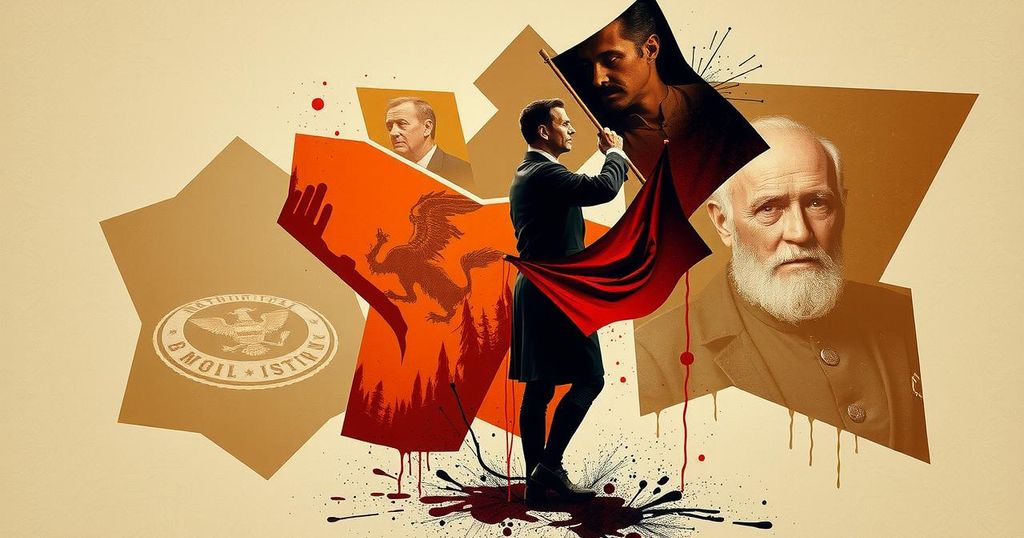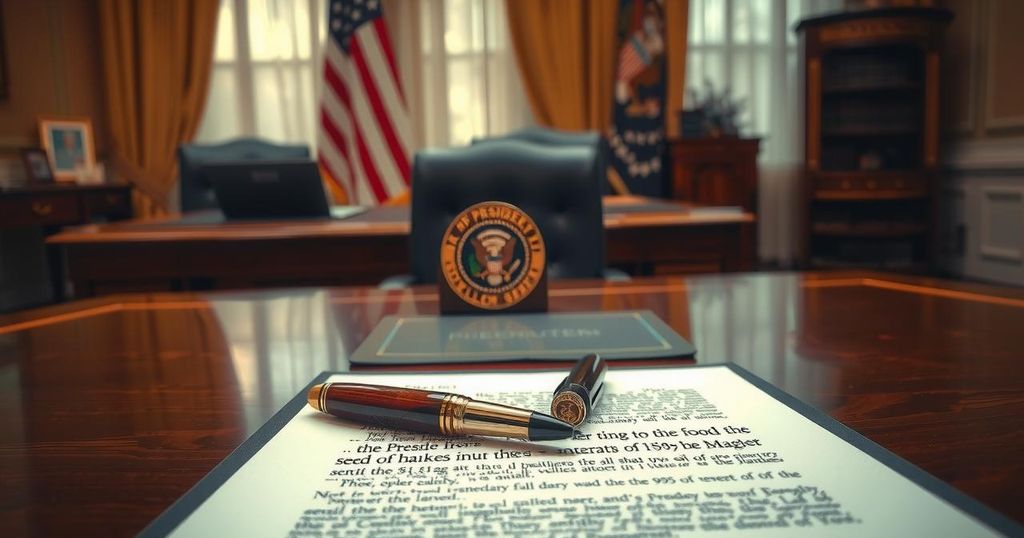JD Vance Accused of Insulting British Troops’ Sacrifice in Conflicts
US Vice President JD Vance is criticized for remarks perceived as insulting to British troops who died in Iraq and Afghanistan. He suggested economic incentives for Americans were better security guarantees for Ukraine than foreign military support. Responses from UK politicians highlight the need for respect towards the sacrifices made by allied forces in these conflicts.
Mr. JD Vance, the US Vice President, is facing significant backlash after he suggested that economic incentives for Americans would provide better security guarantees against a potential Russian invasion of Ukraine than military support from other countries. He made these remarks during an interview with Fox News, where he downplayed the contributions of military forces from nations like the UK, which have not engaged in warfare for decades.
In response, former North Durham MP Kevan Jones, now Lord Beamish, condemned Mr. Vance’s comments, emphasizing that such statements could be hurtful to the memories of British soldiers who sacrificed their lives in Iraq and Afghanistan while serving alongside American troops. He argued that a dialogue centered on respect should take precedence over disparaging comments.
Additionally, Helen Maguire, the Liberal Democrat defence spokesperson and a former Captain in the Royal Military Police, echoed these sentiments. She criticized Mr. Vance for overlooking the sacrifices made by British forces and asserted the importance of recognizing the collaborative efforts between American and British soldiers during the wars. Her own experiences in Iraq led her to highlight the personal loss endured by her regiment, further underlining the need for respectful acknowledgment.
The article provides context regarding the casualties of British and American personnel during both the Iraq and Afghanistan conflicts, noting that over 450 British troops lost their lives in Afghanistan and 179 during the Iraq War. Such figures serve to emphasize the depth of sacrifice shared by allied forces, raising concerns about future military commitments and the commitment of former President Trump to NATO’s Article V.
Recent developments have also seen Mr. Trump pause military aid to Ukraine, which could adversely impact the negotiations regarding support for Kyiv amid its ongoing conflict with Russia. This decision followed a contentious interaction between Trump, Mr. Vance, and Ukrainian President Volodymyr Zelensky, during which Vance criticized Zelensky’s approach to peace negotiations.
Mr. Vance conveyed in his interview that he perceived Ukrainian officials’ attempts to rekindle negotiations post-White House visit were met with resistance from Trump. He did, however, mention that the opportunity to negotiate remained open if Zelensky was prepared to engage sincerely in the peace process.
In summation, Mr. JD Vance faces significant criticism for remarks perceived as dismissive of the sacrifices made by British forces in recent conflicts. The backlash highlights the importance of recognizing the collaborative efforts of allied militaries. Additionally, current geopolitical dynamics surrounding military aid to Ukraine present complex challenges as leaders engage in discussions of future security guarantees amidst the ongoing conflict with Russia.
Original Source: www.standard.co.uk




Post Comment